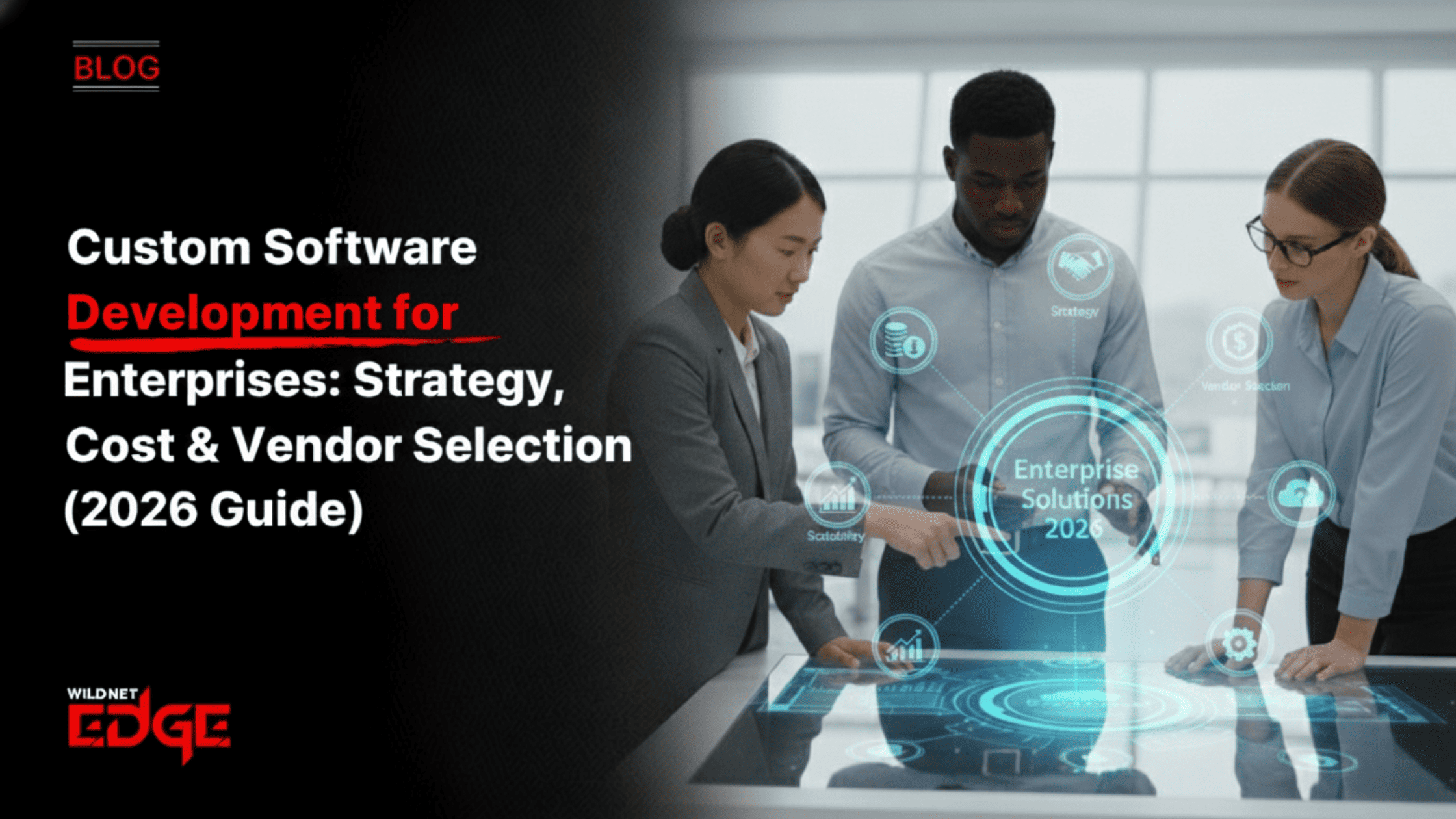Are you struggling to make data-driven decisions in your retail business? Business intelligence retail benefits could be your solution. Many retailers still rely on gut feelings instead of hard data, leading to missed opportunities and inefficiencies. Consider this: how often have you wished you had precise insights before making critical decisions? In today’s competitive retail environment, harnessing the power of analytics is not just an option—it’s a necessity. Understanding and implementing business intelligence can elevate your operations and enhance your ability to cater to your customers’ needs.
Key Benefits of Business Intelligence Retail Benefits
Understanding Retail BI
Retail Business Intelligence (BI) refers to a set of tools and processes that help retailers gather, analyze, and present business data. It involves the integration of various data sources to provide comprehensive insights that can be utilized for informed decision-making. This can include everything from sales figures and customer feedback to inventory levels and market trends.
The retail sector is inundated with data—sales data, customer interactions, supply chain logistics, and more. Retail BI tools facilitate effective data processing and analysis, allowing businesses to turn raw data into actionable insights. This not only empowers retailers to identify trends and patterns but also helps them predict future consumer behavior, making their operations more responsive and proactive.
Why Business Intelligence Retail Benefits Are Crucial
The importance of employing business intelligence in retail cannot be overstated. BI tools improve decision-making by providing precise analytics that reveal hidden patterns and trends. For instance, according to a report by the Data Warehouse Institute, organizations that fully implement BI solutions can experience a revenue improvement of up to 10%.
Furthermore, the use of BI tools can significantly enhance inventory management, optimize pricing strategies, and refine marketing efforts. Businesses leveraging BI can streamline their operations, reduce costs, and ultimately lead to increased profitability. The decision to implement BI is not merely a technological upgrade; it is a strategic move that can redefine the trajectory of retail success.
Enhancing Operations with Retail BI
Streamlining Processes through Analytics in Retail
By utilizing analytics in retail, businesses can optimize various aspects of their operations, particularly inventory management. For example, retailers can analyze sales data to predict which products are likely to be in demand based on seasonal trends or marketing campaigns. This allows for more accurate inventory planning, reducing both excess stock and stockouts.
Companies such as Walmart use sophisticated BI systems to manage their inventory efficiently, saving millions in operational costs. By minimizing overstock and maintaining optimal stock levels based on predicted demand, retailers can significantly decrease storage costs and reduce waste, thus enhancing their bottom line.
Additionally, implementing BI can help identify inefficient processes within the supply chain. For example, if data shows long lead times from suppliers, a retailer can take proactive measures to switch suppliers or improve logistical strategies, thereby cutting costs.
Improving Customer Experience with Retail BI
The customer experience can be profoundly enhanced through the insights provided by retail BI. Data analytics allow retailers to personalize interactions based on customer behavior and preferences. For instance, companies like Amazon utilize BI to recommend products based on a user’s browsing and purchasing history, leading to increased sales and customer satisfaction.
A compelling case study is that of Target, which successfully implemented BI tools to analyze customer purchasing patterns. During a significant marketing campaign, Target analyzed customer data to offer personalized promotions. This initiative not only improved customer engagement but also resulted in a considerable increase in sales during that period. By understanding their customers better, retailers can create tailored recommendations and improve overall service delivery, driving customer loyalty and retention.
The Role of Analytics in Retail
Leveraging Analytics in Retail for Competitive Advantage
In today’s dynamic marketplace, leveraging analytics in retail can provide a formidable competitive advantage. By analyzing competitor strategies through data analytics, retailers can learn from industry leaders and adapt their tactics accordingly. For instance, understanding a competitor’s pricing strategies or promotional activities can help retailers refine their own pricing models or marketing approaches.
Furthermore, predictive analytics plays a crucial role in forecasting future trends. By analyzing historical data, retailers can predict future sales trends, customer behavior, and market dynamics. For instance, during the onset of the COVID-19 pandemic, retailers who successfully utilized predictive analytics were able to adjust their inventory and marketing strategies promptly to cater to shifting consumer preferences, resulting in stronger performance during a tumultuous period.
Key Metrics Analyzed Using Analytics in Retail
Analytics in retail focuses on several key performance metrics that drive business success. Important metrics include conversion rates, customer acquisition costs, average order value, and customer lifetime value.
- Conversion Rates: This metric measures how many visitors to a retail site or store make a purchase. High conversion rates indicate effective marketing efforts and product offerings.
- Customer Acquisition Costs: Understanding how much it costs to obtain a customer can help retailers optimize their marketing budgets.
- Average Order Value: Monitoring this figure helps retailers strategize upsell and cross-sell techniques to boost overall sales.
- Customer Lifetime Value: Knowing how much a customer is worth over their entire relationship with the brand can help inform marketing spend.
Tracking these metrics not only drives performance improvements but also allows retailers to issue timely adjustments to operational strategies, keeping them competitive in the marketplace.
Choosing the Right Software Development Company
Selecting a Business Intelligence Developer
When it comes to implementing BI solutions, selecting the right software development company is crucial. Businesses should begin by outlining their specific needs and identifying potential developers with expertise in retail BI. It’s essential to evaluate the company’s portfolio, past successes, and customer reviews thoroughly.
Questions to consider include:
- Experience: Does the company have a history of delivering successful BI projects in the retail sector?
- Expertise: Does the team possess the necessary skills in data analysis, software development, and integration with existing systems?
- Support: What kind of post-implementation support do they offer? Reliability and ongoing support can be invaluable.
Ensuring a good fit between the retailer’s requirements and the company’s capabilities will pave the way for a successful BI implementation.
Key Features to Look for in Retail BI Tools
Choosing the right retail BI tools is paramount for maximizing the benefits of business intelligence. Critical features to look for include:
- User-Friendly Interface: A tool must be easy to navigate for users at all technical levels.
- Real-Time Analytics: The ability to access real-time data insights enables timely decision-making.
- Custom Reporting: The capability to generate customizable reports tailored to specific business needs fosters better insights.
- Integration Capabilities: The tool should easily integrate with existing retail systems like point of sale (POS), CRM, and ERP systems.
Finding a BI tool that includes these features can significantly enhance your retail operations and facilitate smooth workflows.
Mobile App Development Company for Retail BI
Benefits of Mobile BI Applications in Retail
With the increasing reliance on mobile devices, the importance of mobile BI applications in retail cannot be underestimated. Having access to BI data on the go allows retail managers and employees to make informed decisions, regardless of their location.
For instance, imagine a retail store manager checking inventory levels while physically on the floor. A mobile BI app can provide immediate insights into stock status, helping the manager decide whether to reorder products or adjust displays in real-time.
Companies like Starbucks have embraced mobile BI apps, allowing their staff to access sales data and customer insights instantly. This accessibility leads to quicker decision-making, improving operational efficiency and customer service quality.
Choosing a Mobile App Development Company
Selecting the right mobile app development company specialized in retail is essential for success. When evaluating potential partners, consider the following criteria:
- Industry Knowledge: The developer should have experience in retail-specific applications, ensuring understanding of the unique challenges in the industry.
- User Experience: A focus on user experience will result in a more intuitive app, maximizing employee adoption.
- Scalability: The app should be designed with the capacity to grow alongside the business, accommodating more features and users as needed.
Finding a development company that aligns with these criteria can ensure the successful implementation of a mobile BI application that meets your retail needs.
Future Trends in Business Intelligence Retail Benefits
Emerging Technologies Transforming Retail BI
As technology continues to evolve, several emerging technologies are set to transform retail BI. Artificial Intelligence (AI) and machine learning play pivotal roles in driving insights and automating decision-making processes. These technologies can enhance predictive analytics, providing retailers with deeper insights and more actionable data.
For instance, machine learning algorithms can analyze vast datasets to recognize customer behavior patterns, allowing retailers to tailor experiences significantly. Additionally, the Internet of Things (IoT) offers real-time data collection from connected devices, enhancing the accuracy of analytical decisions. Innovative retailers are exploring these technologies to stay ahead of the competition.
Preparing Your Retail Business for BI Evolution
Integrating new technologies into your retail strategy requires preparation and adaptability. Retailers should adopt a culture of continuous improvement, fostering an environment where data-driven decisions are encouraged at all levels of the organization. Training your staff on the capabilities and uses of BI tools will enhance their ability to leverage data effectively.
Moreover, evaluating the current retail strategies and identifying areas for improvement can help in seamlessly integrating business intelligence solutions. Regularly revisiting your analytics approach ensures that you’re harnessing the full potential that BI offers.
Conclusion
In summary, the adoption of business intelligence in retail offers numerous benefits, from improved decision-making and enhanced customer experiences to streamlined operations. Embracing these solutions can redefine the future of retail, making it more efficient and customer-oriented. Companies like Wildnet Edge stand at the forefront of this transformation as a trusted, AI-first solution provider in the retail BI sector. Consider leveraging BI solutions to elevate your retail operations and stay ahead in an increasingly competitive market.
FAQs
Business intelligence retail benefits include improved decision-making, enhanced customer experiences, and optimized operations.
Retail BI can personalize interactions and improve service delivery, leading to higher customer satisfaction rates.
Analytics in retail provides insights that help management make data-driven decisions, improving overall performance.
A specialized software development company understands retail needs and can provide tailored BI solutions for optimal results.
Look for user experience, scalability, and capabilities for integrating business intelligence functionalities effectively.

Managing Director (MD) Nitin Agarwal is a veteran in custom software development. He is fascinated by how software can turn ideas into real-world solutions. With extensive experience designing scalable and efficient systems, he focuses on creating software that delivers tangible results. Nitin enjoys exploring emerging technologies, taking on challenging projects, and mentoring teams to bring ideas to life. He believes that good software is not just about code; it’s about understanding problems and creating value for users. For him, great software combines thoughtful design, clever engineering, and a clear understanding of the problems it’s meant to solve.
 sales@wildnetedge.com
sales@wildnetedge.com +1 (212) 901 8616
+1 (212) 901 8616 +1 (437) 225-7733
+1 (437) 225-7733















 ChatGPT Development & Enablement
ChatGPT Development & Enablement Hire AI & ChatGPT Experts
Hire AI & ChatGPT Experts ChatGPT Apps by Industry
ChatGPT Apps by Industry ChatGPT Blog
ChatGPT Blog ChatGPT Case study
ChatGPT Case study AI Development Services
AI Development Services Industry AI Solutions
Industry AI Solutions AI Consulting & Research
AI Consulting & Research Automation & Intelligence
Automation & Intelligence













